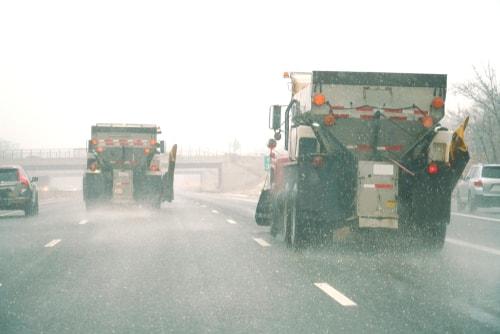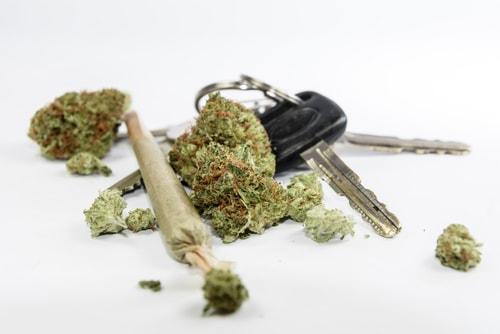Recent Blog Posts
Connecticut State Police: Holiday Crashes and DUI Arrests Increase Over Last Year
 Christmas has officially come and gone once again. While some families will still be celebrating through the coming weekend, the Connecticut State Police has released data on the types of arrests, citations, and situations requiring police assistance over the holiday. According to the data, DUI arrests went up substantially over last year, and the number of traffic accidents also increased. Total calls for police service jumped by about one-third.
Christmas has officially come and gone once again. While some families will still be celebrating through the coming weekend, the Connecticut State Police has released data on the types of arrests, citations, and situations requiring police assistance over the holiday. According to the data, DUI arrests went up substantially over last year, and the number of traffic accidents also increased. Total calls for police service jumped by about one-third.
A Look at the Numbers
The State Police provided the information to news outlets this week and included data on calls between 12:01 a.m. on Friday, December 21 and 12:30 p.m. on Wednesday, December 26. During that period, state troopers arrested 55 individuals on suspicion of driving under the influence. This number is almost double the arrests that were made during last year’s holiday enforcement efforts. In 2017, State Police officers made 28 DUI arrests between December 22 and December 26.
Defense Lawyers File Suit Over Monitoring of Emails Between Prisoners and Attorneys
 Attorney-client privilege is an important part of the American criminal justice system. Under this privilege, a defendant is supposed to be able to communicate freely with his or her lawyer without the attorney being forced to share what was said with prosecutors or law enforcement. The concept works, essentially as an extension of the Fifth Amendment’s right to be free from self-incrimination and the guarantee of due process, the Sixth Amendment’s right to an attorney, and the right to privacy promised by the Fourth and Ninth Amendments to the U.S. Constitution.
Attorney-client privilege is an important part of the American criminal justice system. Under this privilege, a defendant is supposed to be able to communicate freely with his or her lawyer without the attorney being forced to share what was said with prosecutors or law enforcement. The concept works, essentially as an extension of the Fifth Amendment’s right to be free from self-incrimination and the guarantee of due process, the Sixth Amendment’s right to an attorney, and the right to privacy promised by the Fourth and Ninth Amendments to the U.S. Constitution.
In most situations, maintaining confidentiality under the attorney-client privilege is fairly straightforward. Prosecutors, law enforcement, and the government at large do not have the authority or the ability to record or request records of communications between criminal defendants and their lawyers. The situation changes dramatically, however, for those who are already in correctional facilities, including jails and prisons.
The Hidden Secrets of Polygraphs
 For many people, daytime television is a guilty pleasure—whether they stayed home sick from work or simply took a weekday off for once. During the midday lineup, there are several shows that rely heavily on certain types of tests. Some days, they focus on DNA testing and provide the source of the ubiquitous phrase, “You are NOT the father.” Other days, those same shows ask guests to take lie detector tests, also called polygraphs, to determine if they are being honest with their spouse or significant others.
For many people, daytime television is a guilty pleasure—whether they stayed home sick from work or simply took a weekday off for once. During the midday lineup, there are several shows that rely heavily on certain types of tests. Some days, they focus on DNA testing and provide the source of the ubiquitous phrase, “You are NOT the father.” Other days, those same shows ask guests to take lie detector tests, also called polygraphs, to determine if they are being honest with their spouse or significant others.
When we watch shows like these, we realize that they are designed to entertain and keep viewers attention. Few of us actually care whether the test results were accurate. Polygraphs are often used in other applications, however, including in law enforcement and criminal cases, and some institutions continue to rely on them when scientific studies suggest they should not.
A Brief History
Connecticut Supreme Court Limits State Liability in Icy Road Accident Cases
 According to the calendar, winter is still two weeks away, but many parts of the country have already experienced snowfalls. With winter weather, of course, comes the danger of snow and ice on the roadways. Local municipalities often struggle to keep the roads clear for safe travel. At the state level, the Connecticut Department of Transportation (CTDOT) is responsible for clearing state highways and interstates. Unfortunately, however, accidents are not uncommon when roads are covered by snow or ice. Under Connecticut law, it is possible to take legal action against CTDOT for negligence, but a ruling by the state Supreme Court recently limited how far the Department’s liability extends.
According to the calendar, winter is still two weeks away, but many parts of the country have already experienced snowfalls. With winter weather, of course, comes the danger of snow and ice on the roadways. Local municipalities often struggle to keep the roads clear for safe travel. At the state level, the Connecticut Department of Transportation (CTDOT) is responsible for clearing state highways and interstates. Unfortunately, however, accidents are not uncommon when roads are covered by snow or ice. Under Connecticut law, it is possible to take legal action against CTDOT for negligence, but a ruling by the state Supreme Court recently limited how far the Department’s liability extends.
A Weather-Related Accident
In 2011, a man was seriously hurt in an early-morning accident on the Gold Star Memorial Bridge between New London and Groton. The pickup truck he was driving slid on ice, rolled, and crashed into the structure of the bridge. The man’s accident was just one of many that day.
Studies Link Legalized Marijuana to Increase in Car Accidents
 Voters in Massachusetts approved a referendum in 2016 to legalize the recreational use of marijuana in the commonwealth. It took more than two years, however, for lawmakers to come up with a structure and regulatory system that would allow for legal retail sales. Last week, the first retail stores finally opened with a great deal of fanfare. In fact, in the town of Northampton, the town’s mayor was the first in line to make a purchase at one of the new dispensaries.
Voters in Massachusetts approved a referendum in 2016 to legalize the recreational use of marijuana in the commonwealth. It took more than two years, however, for lawmakers to come up with a structure and regulatory system that would allow for legal retail sales. Last week, the first retail stores finally opened with a great deal of fanfare. In fact, in the town of Northampton, the town’s mayor was the first in line to make a purchase at one of the new dispensaries.
While the debate over recreational marijuana has largely focused on criminal laws—and the differences between laws at the state and federal levels—there are other important concerns as well. Two separate studies recently found a statistically significant increase in car accidents in states that have legalized recreational cannabis. Given the geographic proximity of Massachusetts to Connecticut, motorists in the Nutmeg State may have reasons to be worried.
Connecticut State Police Remind Residents That Marijuana is Still Illegal in the State
 The evolution of the public’s attitude toward marijuana over the last few decades has been an interesting phenomenon to witness. The use of the drug has been long associated with a particular lifestyle—and, largely, a certain type of person. While such stereotypes were often inaccurate and potentially discriminatory, they have started to fall away in recent years.
The evolution of the public’s attitude toward marijuana over the last few decades has been an interesting phenomenon to witness. The use of the drug has been long associated with a particular lifestyle—and, largely, a certain type of person. While such stereotypes were often inaccurate and potentially discriminatory, they have started to fall away in recent years.
Much of the change has come from the recognition that marijuana seems to have medicinal and palliative uses—so much so that 33 states have established legal, medical cannabis programs. In 10 states, however, it is legal for adults age 21 and over to purchase and use marijuana for recreational purposes. Among these states is our neighbor to the north, the Commonwealth of Massachusetts. As the sale of recreational marijuana begins in Massachusetts, law enforcement officials here in Connecticut are reminding citizens that the drug is still illegal in the Constitution State.
Two Connecticut Dog Bite Victims Recover Compensation in Separate Cases
 When a dog attacks and causes injury to a person, the owner of the dog is generally liable for those injuries under Connecticut law. The damages that the victim could collect depend on a number of factors, including the extent of his or her injuries and the effect those injuries have on the victims’ life. For example, a person who has been permanently scarred as the result of a dog bite might be entitled to collect more than an individual whose injuries healed completely in a matter of weeks. This idea can perhaps be best explained with real-world cases that were resolved recently right here in Connecticut.
When a dog attacks and causes injury to a person, the owner of the dog is generally liable for those injuries under Connecticut law. The damages that the victim could collect depend on a number of factors, including the extent of his or her injuries and the effect those injuries have on the victims’ life. For example, a person who has been permanently scarred as the result of a dog bite might be entitled to collect more than an individual whose injuries healed completely in a matter of weeks. This idea can perhaps be best explained with real-world cases that were resolved recently right here in Connecticut.
FedEx Driver Receives $160,000 Settlement
Delivery personnel, including those who work for the U.S. Postal Service and private companies like UPS and FedEx, encounter dogs virtually every day. In 2013, a FedEx driver was backing into a residential driveway in Thomaston when he was attacked and bitten by two pit bulls. According to the victim’s account, the attack continued for nearly two agonizing minutes. The man’s wounds were reportedly so deep that the staff at the hospital decided against stitching them up, opting to irrigate them instead to reduce the risk of infection.
Federal Court Ruling Highlights Complexity of Medical Marijuana Issue
 Imagine a scenario in which you are applying for a job. You pass the interview stage with flying colors, and the hiring manager is ready to bring you on immediately. The only thing you have left to do is pass a pre-employment drug screening. You are not worried because everything you currently take has been prescribed by a doctor who is licensed to practice in your state. When the screening results come back, however, they show that you have a particular drug in your system—one that you even told your prospective employer about beforehand. As a result of the test, your job offer is rescinded. Sounds pretty unfair, does it not? This is exactly what happened to a Connecticut woman in a situation that shows just how far we have left to go as our country tries to figure out exactly how to handle medical marijuana.
Imagine a scenario in which you are applying for a job. You pass the interview stage with flying colors, and the hiring manager is ready to bring you on immediately. The only thing you have left to do is pass a pre-employment drug screening. You are not worried because everything you currently take has been prescribed by a doctor who is licensed to practice in your state. When the screening results come back, however, they show that you have a particular drug in your system—one that you even told your prospective employer about beforehand. As a result of the test, your job offer is rescinded. Sounds pretty unfair, does it not? This is exactly what happened to a Connecticut woman in a situation that shows just how far we have left to go as our country tries to figure out exactly how to handle medical marijuana.
A Quick Background
In 2016, a woman was recruited and applied to work at a nursing home and rehabilitation center in Niantic, Connecticut. The woman’s interviews went well, and she was offered the position of Activities Manager pursuant to a pre-employment drug test. Prior to the screening, she informed the hiring manager that she was a registered patient under Connecticut’s Palliative Use of Marijuana Act (PUMA)—the state’s legal medical marijuana program. She had been in an accident in 2012 and was currently using a prescribed pill form of marijuana at night to help with post-traumatic stress disorder (PTSD) symptoms.
Motorcycle Rider Awarded $130,000 for Hit and Run Accident Involving a Mystery Driver
 When you are involved in a hit and run accident, it can be extremely difficult to collect compensation for the damages you incur. If those damages include bodily injury, you are likely to face even greater challenges. It is possible, however, to recover compensation for your injuries after a hit and run accident, as a case out of Waterbury, Connecticut recently demonstrated.
When you are involved in a hit and run accident, it can be extremely difficult to collect compensation for the damages you incur. If those damages include bodily injury, you are likely to face even greater challenges. It is possible, however, to recover compensation for your injuries after a hit and run accident, as a case out of Waterbury, Connecticut recently demonstrated.
The Accident in Question
The crash took place in August 2016 at an intersection in Waterbury. A 44-year-old man was riding his motorcycle when he was struck by a Toyota—knocking him to the ground and causing injuries to the rider’s back and right leg. According to court documents, the driver of the Toyota stopped briefly and then fled the scene.
A subsequent investigation into the crash determined that the driver of the Toyota was not the owner of the vehicle. In fact, the owner claimed she had no idea who would have been driving her car that day. She had reportedly left the car with an acquaintance for repairs, but an attorney for the plaintiff said that the owner’s account "was very sketchy." The driver of the vehicle was never positively identified for the purposes of this case. The Toyota owner’s insurance policy through State Farm paid out $20,000, but the payment fell far short of the losses that the rider had incurred.
Concern Growing Over Law Enforcement Collection of DNA from Juveniles
 Under the current law in Connecticut, anyone who is convicted of a felony is required to provide a sample of his or her DNA to be cataloged in the state’s DNA database. In 2016, the Connecticut Supreme Court even ruled that prison and law enforcement officials were permitted to use reasonable force to obtain the DNA sample when a convict refuses to cooperate.
Under the current law in Connecticut, anyone who is convicted of a felony is required to provide a sample of his or her DNA to be cataloged in the state’s DNA database. In 2016, the Connecticut Supreme Court even ruled that prison and law enforcement officials were permitted to use reasonable force to obtain the DNA sample when a convict refuses to cooperate.
While there has been debate over whether the collection of such samples constitutes a violation of privacy, the law and the Supreme Court ruling only apply to individuals who have already been convicted of a serious crime. Meanwhile, reports indicate that law enforcement officials in Connecticut are asking young men and women—including juveniles—to give DNA samples without their parents’ consent or knowledge.
A Cause for Worry
Earlier this month, lawmakers in California passed legislation that makes it illegal for police officers to obtain DNA from a minor without either permission from the minor’s parent or guardian or a court order. The law was widely regarded as a response to allegations of the police in San Diego targeting young African-Americans for DNA collection. Advocates are pushing for similar laws in other states as well.






